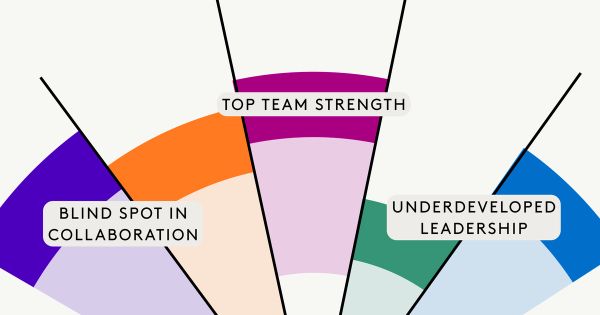Character adds power to job descriptions

Job descriptions are becoming an increasingly important document in the battle to recruit the best talent. Could adding Character be the difference?
ManPower Group has declared the future of work The Human Age. When automation and AI threaten the jobs that humans are skilled in, might it not be more appropriate to consider the future of work The Technical Age? Perhaps they have named it The Human Age because they believe, as we do, that human qualities will become the most highly valued attributes and the most critical indicator of success in the future of work.
The context
When asking ChatGPT what humans can do that technology cannot, the reasoning behind ManPower’s assumptions becomes clearer. ChatGPT noted that “human skills such as creativity, critical thinking, problem-solving, communication, and emotional intelligence are essential for driving innovation, solving complex problems, and building strong relationships.”
Technology removes the need for repetitive tasks requiring logical and repeatable actions. However, technology can only create what is already in existence. An AI bot calls on pre-existing ideas and presents these as an answer. If you had asked AI a couple of hundred years ago how to make your horse go faster, it would have told you to buy a faster horse, and it would not have invented the car.
So, the future of the workforce is human because it is the characteristics of our humanity that give people a competitive edge in the workplace: the parts of us that make us people will be needed in the future. It is not about declaring the future either human or technological but both. This means that we buy the technology for what it can do and hire the human for the unique qualities he/she/they can bring.
Let’s ground this debate in concrete examples.
A warehouse manager is currently expected to review analytics and propose new working methods to maximise efficiency.
A computer can analyse the same data and provide a set of recommendations. The thematic analysis will explore trends and look at past solutions and give the one that has the best outcome.
To remain relevant, the warehouse manager must show curiosity when reviewing analytics. The manager must be creative when contemplating a solution that may never have been tried before and resilient in the face of failure and course correction, also known as trial and error.
The person comes with the curiosity to think outside the box, creativity to propose novel solutions and resilience in the face of the apparent fallibility of being human. These qualities mean we find the next level of practice that has never been innovated and deploy the technology to achieve this.
What does this have to do with job descriptions?
Suggesting you hire a recruit for the human qualities they bring to work in harmony with technology means writing a job description for the person you want.
If you need someone to bring something that a computer cannot when analysing data, hire on curiosity, not on the technical ability to read the data.
If you need new approaches to logistics that deploy technology more effectively, hire someone based on their creativity and not on the technical ability to use the technology.
Adding in the Character Qualities you require in the human being allows you to recruit the person who can take that role into the future.
The added benefits
If job descriptions are now the advertisement to acquire talent during a talent crisis, they must be advertisements for the organisation more than anything else. In a time where Diversity, Equality and Inclusion have been joined by Belonging, imagine what is being communicated by a job description that promotes wanting the best human being for the role.
For a Gen Z or Y, or even a millennial, a sense of being recognised as an individual is at the core of their being. Skills might get them to the interview, but identity is core – and that recognition is what will keep them performing at their best and growing in the role. Imagine what is promoted about the business that declares I want to hire the best person with the most valuable, individual, human qualities.
Then, think about the employee you genuinely need for the future of work. We don’t know what additional skills will be required in 10 years. Therefore, what we genuinely require in an employee is the growth mindset to change and adapt, being agile in their professional development and evolving the skills required. Therefore, scattering job descriptions with phrases like self-aware, committed, influential, pioneering, strategic, compassionate, and more will likely mean you employ people who will grow with you.
Entelechy’s mission
Entelechy has undertaken an analysis of 580 job descriptions. Having rewritten all of them to include Character, we discovered it is a critical missing ingredient. Our research isn’t attempting to prove that Character is a ‘silver bullet’ for the skills and talent crisis. However, it highlights that employers and governments are still planning for and implementing the kind of education and training that delivers candidates with the skills and abilities that technology is already beginning to replace. Omitting this vital element of Character is accelerating the speed at which these people become redundant in the workforce – unable to adapt in changing times.
We plan to turn this research into a tool to help employers write Character into job descriptions. If you want to learn more about how this simple beginning can start a revolution in your people management, email .
You may also like

Summer Break: A Guide for Graduates

